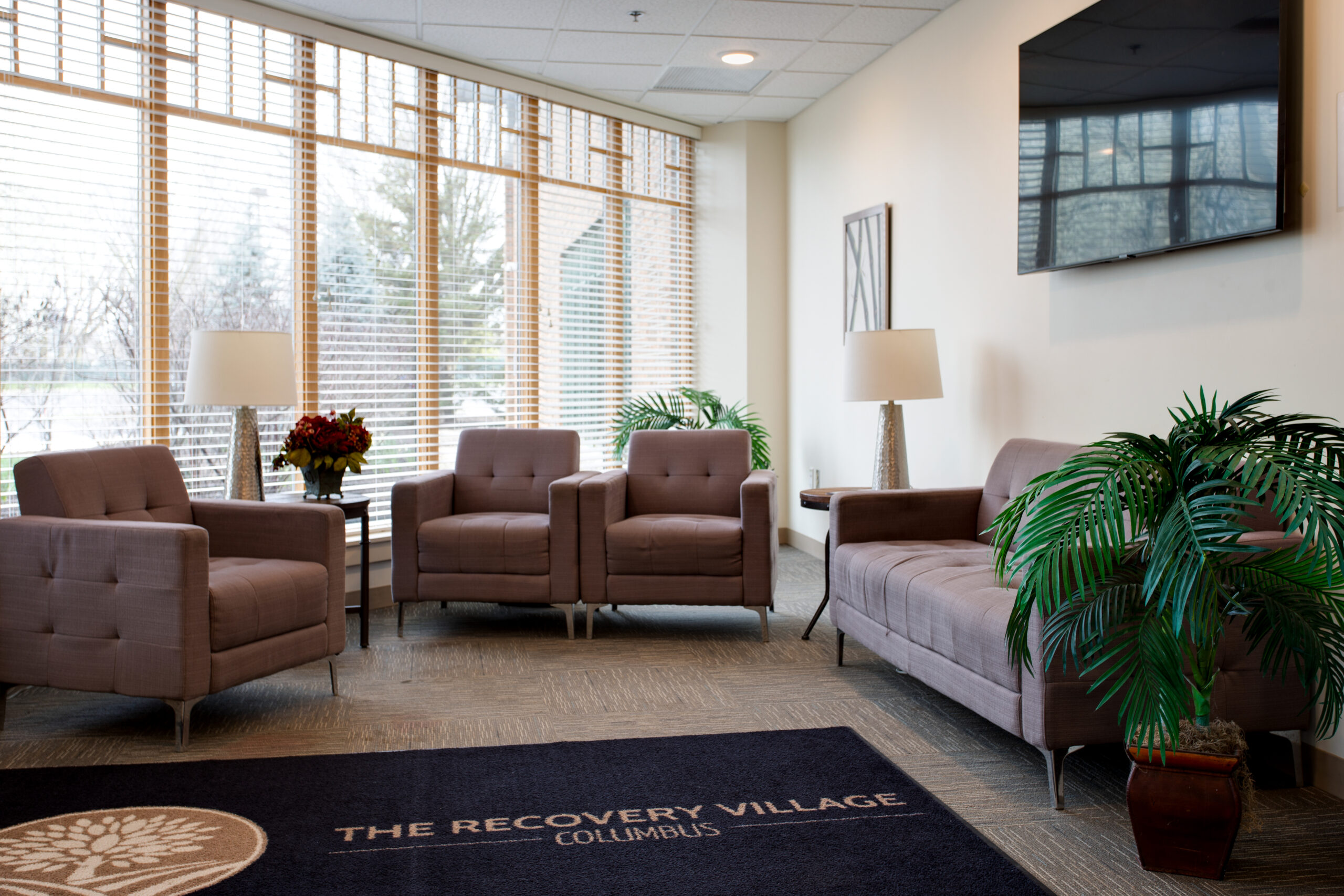The Recovery Village Columbus offers a continuum of evidence-based and medically-guided care for addiction treatment and co-occurring mental health disorders.
The Recovery Village Columbus is a trusted, physician-led addiction treatment center serving Hudson residents.
The Recovery Village Columbus is centrally located in Ohio, serving the needs of individuals around the state and country. Our team is unique because we provide treatment driven by research for drug and alcohol addiction and co-occurring mental health disorders. Our Ohio location is in a calm, quiet environment, allowing for a complete focus on recovery.

In Ohio, in 2007, unintentional drug poisoning became the top cause of injury-related deaths.
During that year, drug poisonings surpassed car crashes as the leading cause of accidental death for the first time, and the trend has since continued. In 2020, Ohio saw the highest number of deaths because of unintentional drug overdoses. In 2020, fentanyl was involved in more than 80% of Ohio’s overdose deaths and was frequently combined with other drugs. These are trends that are often mirrored in Hudson as well.
Our philosophy at The Recovery Village Columbus is that success in addiction recovery requires an individually tailored treatment plan. Treatment should also be guided by up-to-date scientific research and medical understanding. Addiction to drugs and alcohol is a mental health disorder. With that in mind, we treat symptoms and underlying root causes. These are essential considerations to consider when choosing a treatment facility.
When you’re going through detox, you need medical and emotional support. Medical detox is a necessary first step in the recovery process. During medical detox, drugs and alcohol leave your system. Our team of medical professionals can help you stay safe and comfortable during this time.
At The Recovery Village Columbus, inpatient addiction treatment is residential and includes onsite living. The environment is structured and supportive, with medical supervision, counseling, therapeutic services and activities. Most patients begin with medical detox and move on to an inpatient treatment program.
Addiction often happens along with other mental health conditions. Co-occurring disorders or dual diagnosis affects around half of those with a substance use disorder (SUD). We believe if you have a co-occurring mental health disorder and an SUD, both must be thoroughly addressed during treatment. We take a holistic approach rather than only managing symptoms to facilitate the best possible recovery outcomes.
The Recovery Village Columbus is located in Groveport, the heart of Ohio. We are part of the Columbus metro area, about two hours by car from Hudson.
Our approach to treatment is guided by science and led by physicians who are addiction treatment experts. Addiction is a complex disease, and the effects are far-reaching and include social, mental, emotional and physical symptoms. Our team of experts creates a professional treatment plan for every unique patient and helps promote their long-lasting recovery.
While everyone’s treatment journey is tailored to them, many follow similar steps in a continuum of care. The process often begins with a medical detox so that you can stabilize as drugs and alcohol leave your system. You can begin your treatment, which typically starts with an inpatient stay.
As you progress in your recovery and are ready, you might step into less intensive levels of care, such as outpatient rehab. During these levels of care, you begin to explore what your life of recovery will be like outside of the structured environment of a residential program.
We want everyone who comes to us to feel safe, comfortable and as if they’re in a serene, healing environment. With that in mind, our facility is peaceful and quiet and allows you to focus solely on the work you’re there to do.
Along with our medical addiction treatment programs, we also offer wellness amenities onsite, including:

Ohio Department of Health. “Drug Overdose.” Accessed February 3, 2023.
National Association of Addiction Treatment Providers. “Treatment Methods & Evidence-Based Practices.” Accessed February 3, 2023.
NIH National Library of Medicine. “Overview of a Continuum of Care.” Accessed February 3, 2023.

The Recovery Village Columbus offers comprehensive addiction treatment for drug and alcohol addictions and co-occurring mental health conditions.
Medical Disclaimer: The Recovery Village aims to improve the quality of life for people struggling with a substance use or mental health disorder with fact-based content about the nature of behavioral health conditions, treatment options and their related outcomes. We publish material that is researched, cited, edited and reviewed by licensed medical professionals. The information we provide is not intended to be a substitute for professional medical advice, diagnosis or treatment. It should not be used in place of the advice of your physician or other qualified healthcare provider.
Schedule Your Admission Online